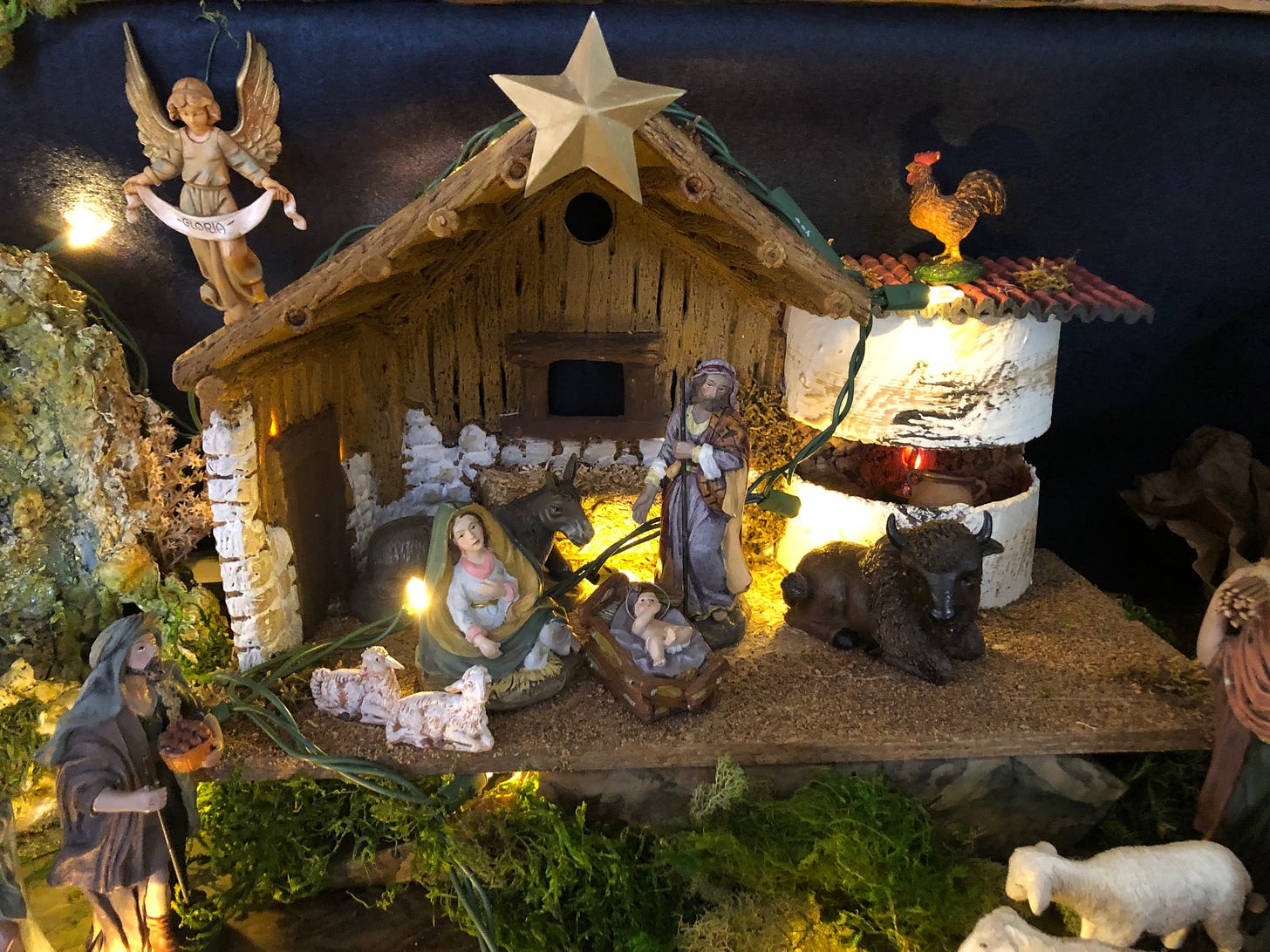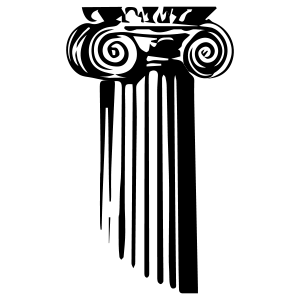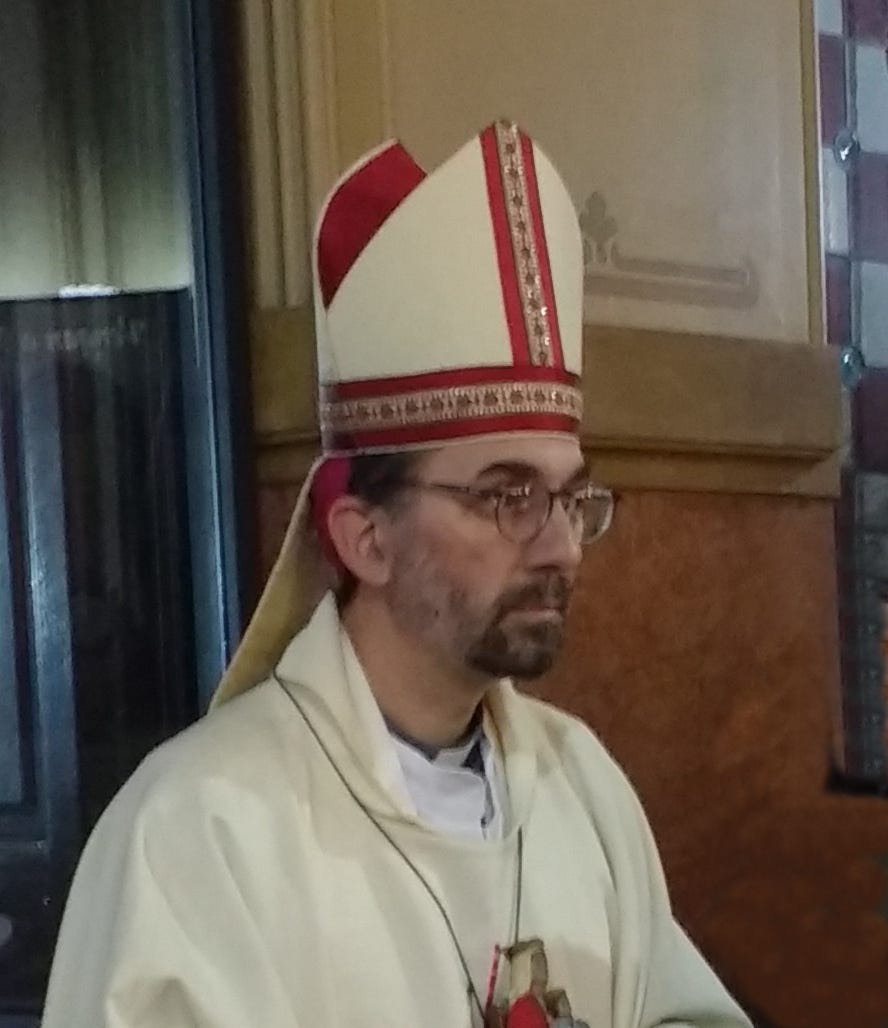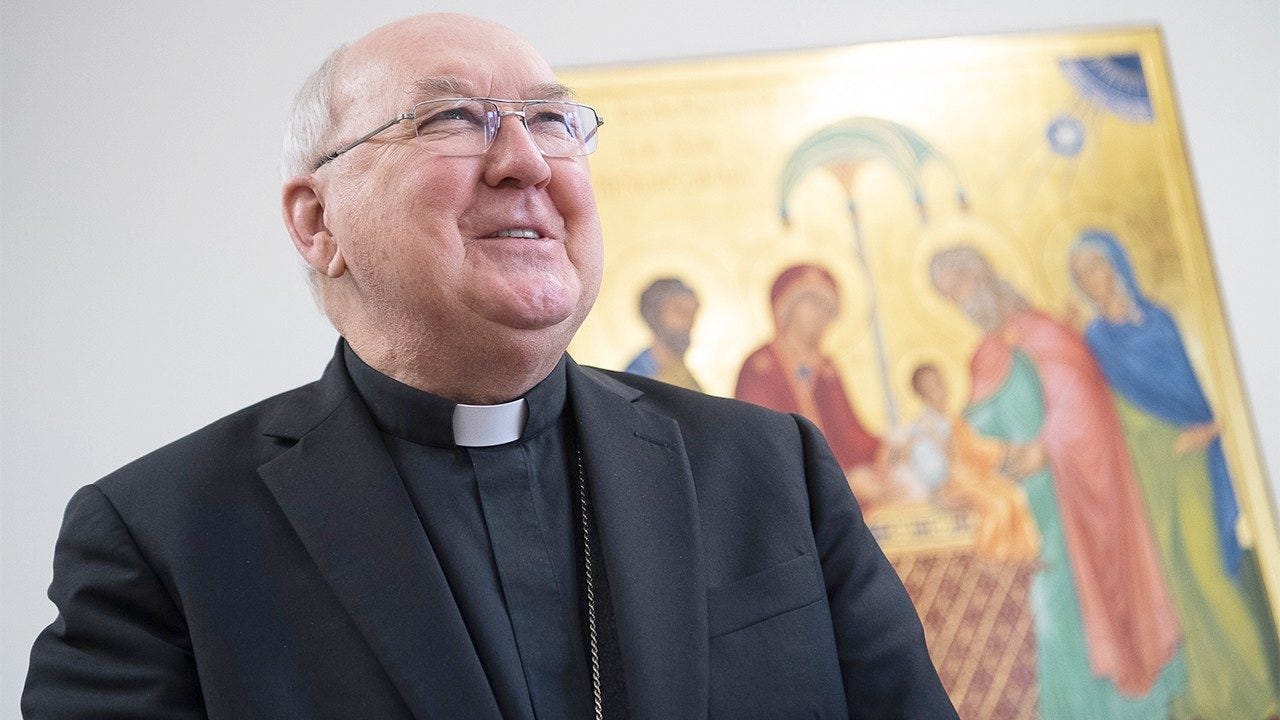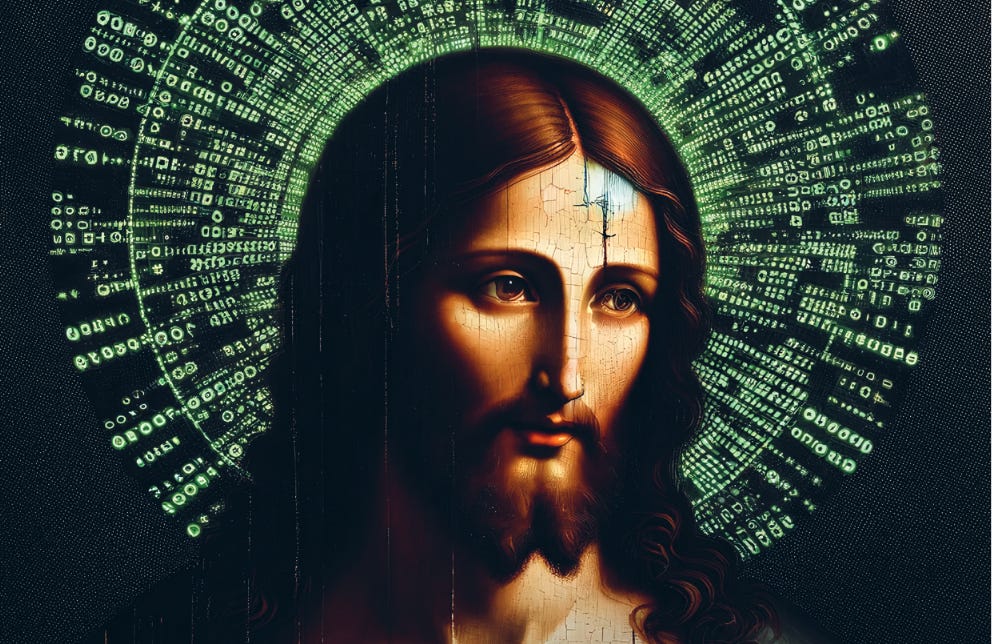Happy Friday friends,
And a happy Christmas to you all. The Mrs. and I normally head home to London for the holidays, but this year — again — we find ourselves still in Washington, as the pandemic continues to make international travel, especially with a still-undocumented infant, something of a non-starter.
It’s a wrench to miss family and friends at Christmas for a second year, but also a reminder for us to be grateful for everything we have received these last twelve months.
And a big part of that is, of course, giving thanks for the support we have received from so many of you as we work to close out our first year here at The Pillar. We’ll be bringing you an update later on some of the things we’ve been able to accomplish with your help this year, and some of our plans for next year.
But in the meantime, 2021 ain’t over yet, and neither is the news, so let's get to it:
Quick links
Mass tonight in many parishes will be full — whatever “full” looks like under local covid conditions — and for many of the Catholics in the pews, this will be their first, and possibly last time in a church for months.
How to catch the ear of a Christmas-and-Easter Massgoer is an annual question for priests.
—
The fallout of a recent responsa from the Vatican’s Congregation for Divine Worship on new restrictions on the Extraordinary Form of the Mass continues to settle.
The “answers” issued last weekend by the CDW have raised a lot of new questions, not least from bishops wondering if they are really being ordered to disturb what is, in at least some cases, a hard won liturgical peace in their own dioceses.
Canonists have generally agreed that a Vatican dicastery, responding to dubia under its own authority, has no authority to authentically interpret canon law — to create the kind of legally binding interpretations that might have been made with a specific approval, or a specific delegation, from Pope Francis.
So what the bishops have is a document which gives them the mind of a Vatican office — and presumably the mind of Pope Francis — but which probably does not bind them. Of course, some will use that document to enact liturgical policies they’d like to see. And some, with no particular interest in the issue, might be glad to do what the CDW directs.
A few might write back to the Vatican to ask about the responsa’s authority.
—
—
Pillar reader Cardinal Angelo Becciu sent an extended Christmas card to his brother Cardinal George Pell in the form of an open letter this week.
The former sostituto of the Secretariat of State has been in a state of public disgrace since being sacked by the pope last year, and charged in July with a range of crimes, including embezzlement and abuse of office.
But this didn’t stop him from issuing his own seasons’ greetings to Pell, and accusing him of stooping beneath their mutual cardinalatial dignity by asking a lot of impertinent questions, like would Cardinal Becciu please just clear up this whole question about why he authorized millions of euros in money transfers to a small company in Melbourne right at the time Pell was being charged by police.
If you need a primer on that, you can read it here.
Becciu’s answer was, in effect, “bah humbug,” and he insisted that he has far too much respect for the Vatican City court to preempt his own trial by talking anywhere outside of that august forum. Of course, these scruples, and his notions of the dignity of a cardinal, didn’t stop him trying to sue the Vatican prosecution’s chief witness against him for defamation in an Italian court. That didn’t end brilliantly for Becciu.
If you want a recap on that less-than-dignified episode, it’s here.
Noting that Pell has been offering his recollections of the shady financial dealings at Becciu’s old department, the disgraced cardinal said he expected better of Pell who, Becciu suggested, ought to know better than anyone how hard he has it, being accused of crimes he insists he didn’t commit.
Of course, Pell did more than a year in solitary confinement after being branded a child abuser and wrongfully convicted of crimes witnesses repeatedly testified he didn’t and couldn’t have committed, before being freed by the Australian High Court.
Becciu, on the other hand, when not in court, divides his time between his expensively renovated Vatican apartment in the Palazzo del Sant'Uffizio and visiting his family on the island of Sardinia. So maybe, just maybe, their cases aren’t exactly like for like.
You can read about Becciu’s letter to Pell here.
—
In this week’s installment of his interesting conversations with interesting people, our own Charlie Camosy sat down with Cardinal Gerhard Müller, the former prefect of the Congregation for the Doctrine of the Faith.
What’s wrong with the modern secularist philosophies, Müller says, isn’t that they reject the God of the Church and of the Scriptures — classical pagans understood and accepted many of the same principles — it’s that they reject the fundamental concept of individual human worth.
“The problem of the so-called secularization does not consist directly in the foundation of an ethics without the explicit appeal to supernatural revelation, in the Jewish and Christian sense. What fundamentally challenges Christian theology is its denial of the existence of a human nature at all!
Speculative and practical reason are on our side. We must not allow ourselves to be pushed into a supranaturalism and disconnect revelation from the natural world.
Religion is very much a matter of personal conscience, but it is not a ‘private matter.’ We have to participate in societal discourse with confidence and must never surrender these rights.”
A scandalous birth
Every year, around Easter, I tend to hear a lot of good homilies on the “scandal of the cross” which, as St. Paul says, is an impossible obstacle to some, and just plain foolishness to others.
This Advent, I have been thinking a lot about the scandal of the crib, so to speak, and the reflexive, sometimes violent, contortions so many people go to to avoid the oft-sought “true meaning of Christmas.”
The idea that the birth of a baby came to be the axis point, not just of human history, but of the entirety of creation has, for two millenia, struck the world as a claim of almost insufferable hubris.
Even within the Church, many of us struggle to accept the simplicity and power of God’s act of incarnation — that He became man, so overwhelming is the proximity of His love for us, and so determined is He to break open the gates of heaven to our fallen nature.
There must, I see so many kick and fuss, be something more direct, more practical, to God’s salvific plan. The simple birth of a child isn’t enough. It’s this obstacle which, I think, causes some Catholics to freight the nativity with political overtones and immediate social relevance:
“Jesus was born as a refugee!” (No, Bethlehem was Joseph's hometown, I think you mean the flight into Egypt.)
“Mary was a single mother and a prophetic witness against patriarchy!” (She was not.)
“The Magnificat is calling for a progressive tax policy!” (It isn’t.)
All this is, in the end, the same scandal which drove Judas mad — it’s not enough, surely, that God simply choose to live and die as man and rise as God to save us; when will He bring us human justice?
On the other side, we have still the Greeks who think the whole idea of a God at all, let alone one born as an uneducated peasant in imperial flyover country, is just an infantile delusion.
Everyone accepts humanity must be saved, even in our modern world, but the consensus is that the project is best left to experts.
As a society we’ve thought aloud a lot this year about the wisdom of experts and the madness of the simple people. Away from the musings about how to fix our “broken” democracy (mostly consisting of ever more novel gerrymandering and the occupation of key offices, from what I can tell), we remain firmly under the care of experts determined to save us from the ravages of our current pandemic.
Of course, the same experts who rightly count every infected person and every life lost as a tragedy do so with more than a little contempt for our collective foolishness. For this reason it was determined that we skip over the set classification for viral variants: people can’t be trusted to say “Nu” or “Xi” without being silly.
The scandal of the crib, that a simple baby bereft of lordship can command kingship, is carried through to incredulity that a simple carpenter’s son, lacking the necessary Harvard degrees, can have anything of importance to say, let alone proclaim the Good News of salvation to all mankind.
I guess the power of the birth of babies means more to me this year than it has in previous ones.
Our own daughter, not yet 3 months old, has started cutting her first tooth — a canine, despite the baby books assuring me this doesn’t happen. As a result, our lives are now ruled, depending on her mood, by something between a baby and a rhinoceros, to borrow a phrase from A Christmas Carol.
It is, then, my Christmas blessing that I can accept better than I have before, the power and immediacy of an infant arrival. If this one girl, so full of life and will, can change so much in our home, how simple, how true, how easy it becomes to accept the power of the birth of the Christ Child.
See you next week, and Happy Christmas,
Ed. Condon
Editor
The Pillar

